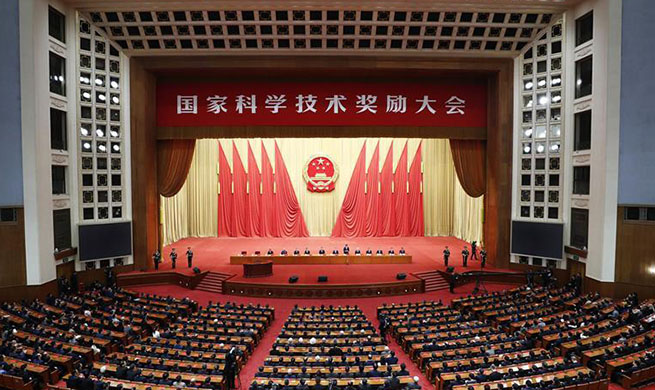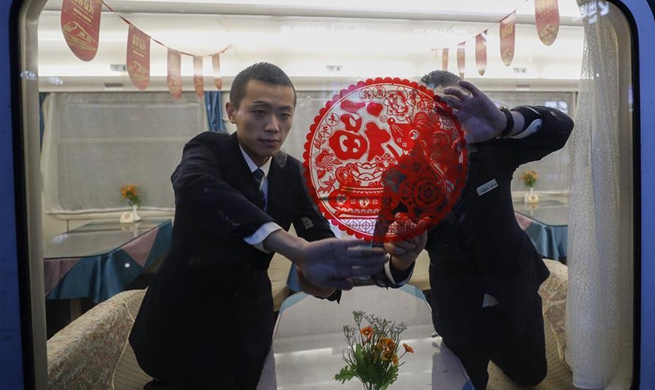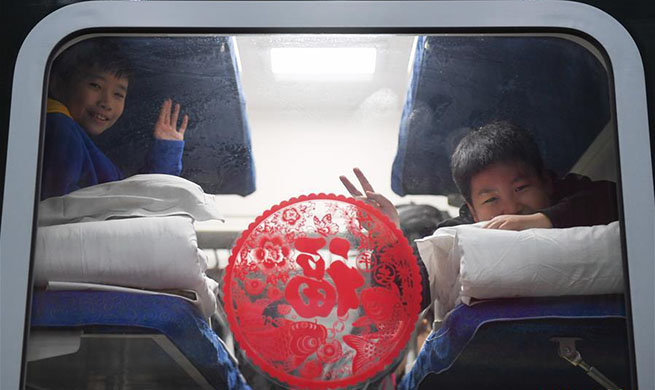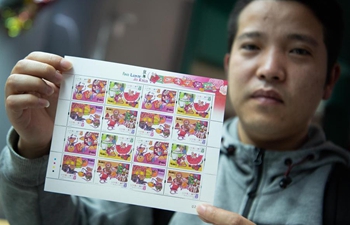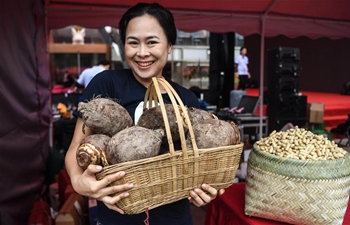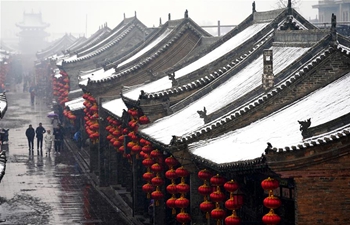BEIJING, Jan. 10 (Xinhua) -- China's retail market is warming up ahead of an anticipated spending boom during the Chinese Lunar New Year two weeks away, with online and offline players vying for a larger consumer share amid a climax of festivity and pro-consumption policies.
Online shopping platforms have started their early-bird shopping promotion campaigns. Suning, a leading retailer, kicked off its new year-themed shopping festival on Dec. 31, 2019, and will offer special discounts until the end of January on its online and offline channels, on the basis of over 13,000 stores across the country.
Juhuasuan, a platform of e-commerce giant Alibaba, has also started promotion activities for the Spring Festival. It plans to lavish around 10 billion yuan in subsidies for agricultural products such as pork, sweet oranges and Chilean cherries to enrich the supply for Chinese New Year.
"Trading up" and "enriched supply" are two of the keywords of this year's New Year shopping frenzy, which is likely to see higher turnover than last year, thanks in part to a host of favorable policies aiming at priming the pump for the country's key growth driver.
Combined sales of retail and catering enterprises in China during the week-long Spring Festival holiday in 2019 reached 1.01 trillion yuan (about 146 billion U.S. dollars), up 8.5 percent from 2018, according to the Ministry of Commerce.
Fostering a strong domestic market has gained momentum. An official guideline on boosting consumption during the holiday highlighted more supply of quality products and developing holiday consumption to meet people's diversified consumption demands. The guideline also underscored diverse cultural activities and high-quality cultural products to promote the fine traditions of the Chinese nation.
The policies target the mainstays of the holiday consumption season. The tourism sector is expected to be more buoyant during the Spring Festival holiday. The number of trips made across China is predicted to reach 450 million during the upcoming seven-day holiday that starts on Jan. 24, up from 415 million in 2019, according to a report from China's major online travel agency Trip.com Group.
More efforts will be made to develop culture and tourism-related consumption, including building pilot demonstration areas and developing nighttime economy, said Gao Zheng, director of the industrial development department of the Ministry of Culture and Tourism.
Cultural entertainment consumption is also expected to see year-on-year growth. Cinemas will present 11 films including "Legend of Deification," a new animated film by the same studio that produced last year's smash hit "Ne Zha," according to a research note by China International Capital Corporation Limited (CICC).
China's box office earnings during the upcoming Spring Festival holiday are expected to reach 6.9 billion yuan, up 17 percent from last year, CICC said.
In a bid to further meet booming domestic demand, the country lowered or canceled import duties on certain products from Jan. 1, 2020. The import tax on frozen pork, for instance, was cut from 12 percent to 8 percent.
Tmall International, Alibaba's online marketplace for imported goods, released a hot brand list on Dec. 31, enabling 1,049 overseas brands to have fast-track registrations on the platform.
As China's economic restructuring progresses steadily and the endogenous power of the economic growth becomes stronger, the fundamental role of consumption in China's economic development has been further strengthened, serving as the main driver for high-quality economic development, said Guan Lixin, a researcher with the Chinese Academy of International Trade and Economic Cooperation.










